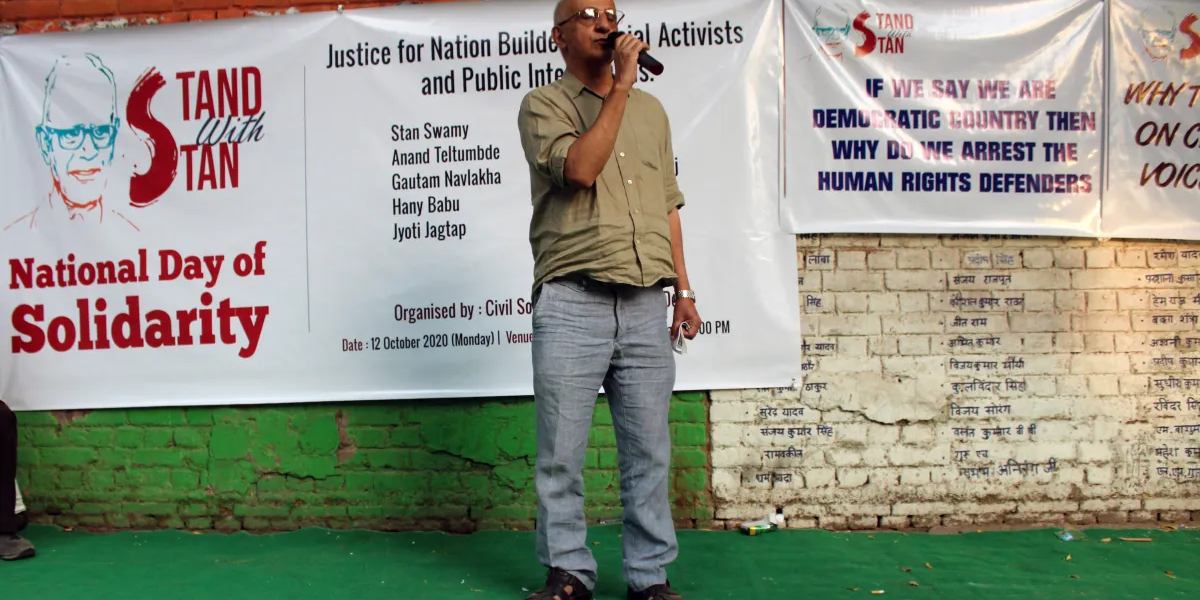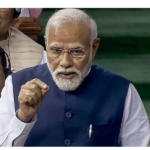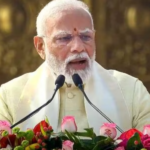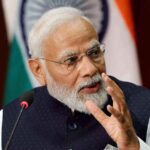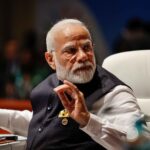This is New Delhi, India. Investigators from India have conducted raids on various locations in the nation’s capital that are associated with a famous rights activist. This action, which has been criticized by Prime Minister Narendra Modi’s detractors, is part of a pattern that has seen his government pursuing political opponents two months before general elections.
On Friday morning, officials from the Central Bureau of Investigation (CBI) conducted a raid at the residence of former bureaucrat Harsh Mander as well as the office of a think tank in New Delhi called the Centre for Equity Studies (CES), which is connected to him. The CBI officials are currently investigating allegations of financial irregularities in accordance with the Foreign Contribution (Regulation) Act.
After serving as an official in the Indian Administrative Service for a period of 22 years, Mander quit in 2002 in response to the riots that occurred in Gujarat state at the time when Modi was serving as the state’s chief minister. As a result of the violence, more than one thousand persons lost their lives, the majority of whom were Muslims, according to the state authorities.
Since the Bharatiya Janata Party (BJP), currently led by Prime Minister Narendra Modi, came to power in 2014, Mander has been a vehement critic of the Hindu nationalist agenda that the Modi government has been pursuing.
Nevertheless, he is just the most recent in a string of critics and opponents who have been subjected to searches or arrests by federal agents in the past few weeks. Among those who have been subjected to these actions are four state chief ministers who belong to opposition parties.
The Enforcement Directorate (ED), which is India’s department for dealing with financial crimes, detained Hemant Soren on Wednesday, just a few hours after he resigned from his position as the chief minister of the state of Jharkhand. It has been alleged that Soren is corrupt, however his party has refuted this accusation.
Other opposition leaders, such as Tejashwi Yadav, who served as the deputy chief minister of the neighboring state of Bihar, and Arvind Kejriwal, who served as the chief minister of Delhi, have also been subjected to raids by federal agents in the past few months. Kejriwal’s deputy and a member of parliament representing his party are already incarcerated at this time.
Just prior to the elections that took place in November of the previous year, authorities from the Enforcement Department (ED) arrested Chief Minister Bhupesh Baghel and his colleagues in the central region of the state of Chhattisgarh. They were accused of various scams by the Bharatiya Janata Party (BJP), one of which was an unlawful coal mining contract. The BJP exploited these accusations as a major platform to win the state elections.

‘It is paralysing’
Apoorvanand, a professor of Hindi literature at the University of Delhi and a close friend of Mander’s, stated that he awoke to the “upsetting news” of the raids that took place on Friday.
During an interview with Al Jazeera, he stated that the investigative authorities have been persistently harassing both Mander and the members of the civil society.
Harsh Mander is not the only person involved; rather, it is a pattern that we observe. A number of members of India’s civil society have been imprisoned and their funding has been cut. It has a paralyzing effect,” he stated. “It is also a signal to civil society: you can talk about water conversation or solar panels in villages, but you do not speak for human rights or rights of minorities,” the statement reads.
According to the allegations made by the government, Mander violated the law by accepting foreign contributions totaling over $14,000 in the FCRA account of his group between the years 2011 and 2018. Several think tanks and close to 6,000 non-governmental organizations (NGOs), including Oxfam India and Amnesty India, had their FCRA licenses revoked by the government not too long ago.
In an interview with Al Jazeera, Meenakshi Ganguly, the deputy director of Human Rights Watch’s Asia division, stated that “these raids or allegations of financial irregularities seem to have become a norm for the authorities to silence peaceful criticism.”
Currently, a number of activists are being prosecuted, with some of them being charged under extremist statutes. Ganguly makes the following statement: “When independent state agencies are seen to act in a partisan manner, with politically motivated targeting of dissent, it undermines India’s image as a country that upholds the rule of law.”
‘Agencies work for BJP’
Sushil Sunny Agrawal, a former minister in Baghel’s cabinet who is now 39 years old, was one of the politicians that the Enforcement Directorate (ED) raided prior to the state elections in the previous year.
“They subjected us to mental agony. The officers from the Electronic Department asked me, “What is in there to stay with the Congress?” Agrawal told Al Jazeera, “Join the Bharatiya Janata Party; that is where the future is.”
The Bharatiya Janata Party (BJP) use these agencies as liaisons. They negotiate on their behalf: “If you choose to associate yourself with Modi, you will be exonerated of all of this and have the opportunity to have a prosperous future.”
Keeping Agrawal on edge is the forthcoming general elections that are taking place. There are no boundaries for the BJP. According to him, “and they are in full-on attacking mode, weaponizing the central agencies in order to completely curb the opposition.”
In response to the intensifying assault on opposition groups, Agrawal stated that he was looking to India’s judicial system for solutions.
“a clear pattern of using investigative agencies… to target, debilitate, and in fact crush the entire political opposition and other vocal citizens,” a group of opposition parties petitioned India’s highest court in March 2023. The petition stated that, “a clear pattern of using investigative agencies…”
In the appeal, it was mentioned that since Modi came to power in 2014, the Central Bureau of Investigation (CBI) and the Enforcement Department (ED) have taken up 95 percent of the cases against politicians from the opposition. This represents a 60 percent and 54 percent increase, respectively, from the days when the previous administration was led by the Congress party.

It was noted by the Supreme Court that politicians could not be elevated to a higher status than citizens, that they could not seek special treatment under the law, or that they could not seek immunity from arrest. Despite this, the Supreme Court did not rule on the petition.
According to the court, “the answer lies in the political space and not in courts,” when political parties allege that there is a chilling effect on the opposition as a result of proceedings brought by the Central Bureau of Investigation and the Enforcement Department against opposition political leaders.
A lawyer for the Supreme Court named Prashant Bhushan stated that “anyone who is a critic of this government is being targeted.” This includes politicians, members of civil society, and other individuals.
It is regrettable that the judiciary is doing very little or almost nothing to preserve the rights and liberties of the public, as this is the birth of a fascist state under Modi’s leadership. It seems as though its independence has been completely lost.
According to Agrawal, the administration of Modi is “hijacking” the upcoming election by focusing on opposition leaders and activists. According to what he claimed, “Democracy has completely ended in India.”
Apoorvanand was in agreement. In an interview with Al Jazeera, he stated that the government’s crackdown was an attempt to build a one-party rule framework in India.
“When the opposition parties should be hitting the roads [to campaign] ahead of the elections, they are running from one agency to another,” he said. “They are not participating in the campaign.” As a result of the distractions, the campaigns’ supporters will experience a loss of motivation. Without making any changes to the constitution, it is possible to achieve a one-party state without any difficulty.
Apoorvanand expressed his concern by saying, “I can feel this fear from the civil society to the academic world. Who is going to be next?”
From Agrawal’s point of view, the solution is very clear. “Whoever does not walk with Modi, who raises voice against them, they are the next,” Agrawal warned. “They are the next.”
When a common man speaks out against the government, the people who are considered to be civilians will be the ones who are targeted.
